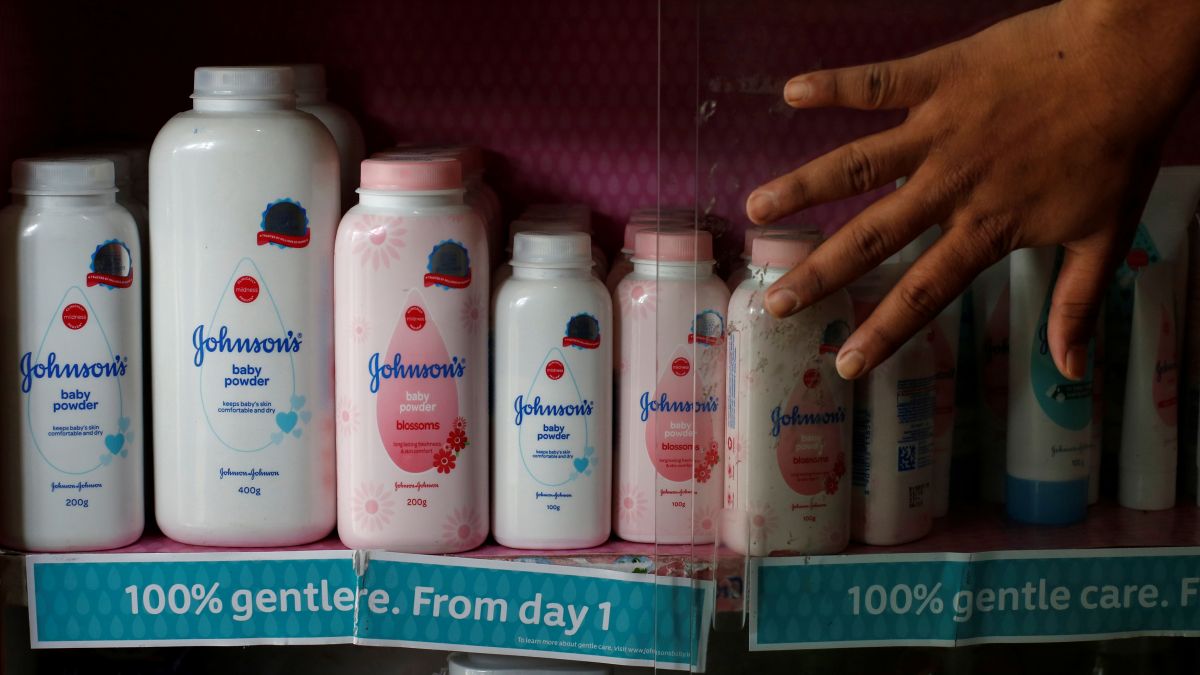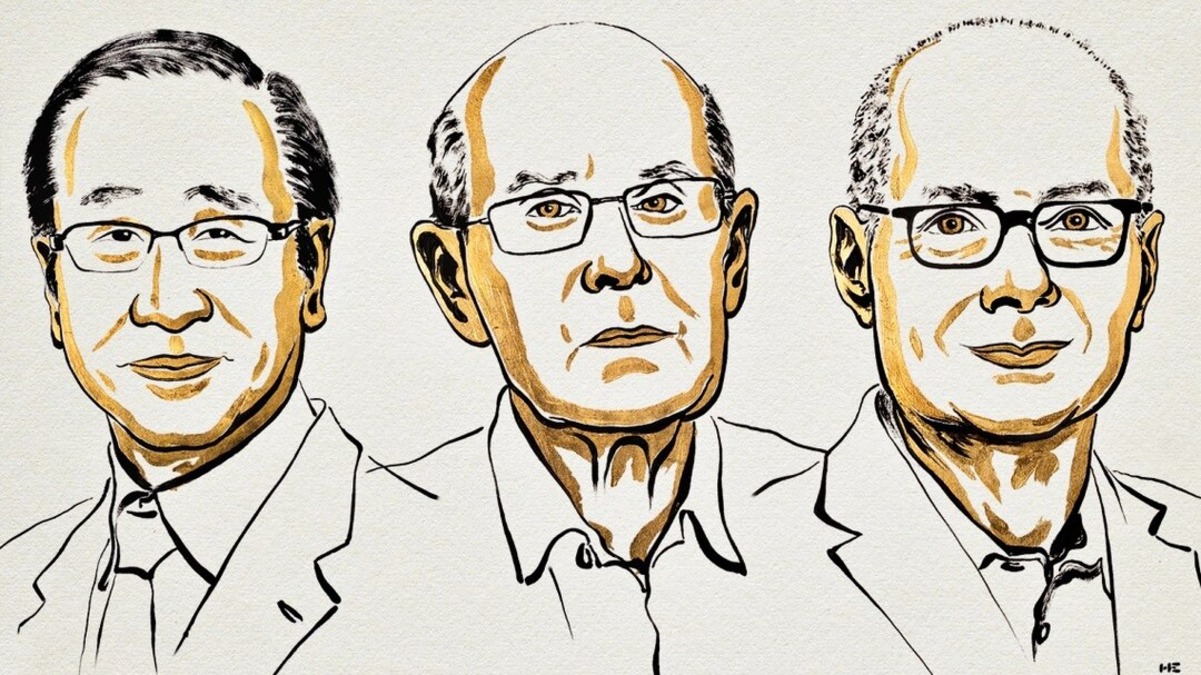We all have memories of using Johnson & Johnson (J&J) products as children — be it baby oil or talcum powder. But, in recent times, J&J products, namely their baby powder, has come under a cloud which only got exacerbated on Monday when a Los Angeles jury ordered the American firm to pay $966 million (Rs 8,522 crore) to the family of a California woman who died from a rare and aggressive cancer attributed to the use of the powder.
But what was the case exactly? And does Johnson & Johnson’s baby powder actually cause cancer?
We have the answers for you.
Latest case against Johnson & Johnson
A Los Angeles jury has ordered J&J to pay $966 million to the family of a California woman who died from a rare and aggressive cancer, after the company was found liable in a lawsuit claiming its baby powder products cause cancer.
According to court filings, the jury ordered J&J to pay $16 million in compensatory damages and $950 million in punitive damages in the matter.
The family of Mae Moore, a resident of California, claimed that she died in 2021 owing to mesothelioma, a rare cancer. The family attributed the cancer to Moore’s use of the J&J powder, which was contaminated with asbestos — a known carcinogen.
Jessica Dean, a Texas-based lawyer who represented Moore’s family, celebrated the jury’s directive. “It took this family five years to get their day in court and we’re pleased the jury concluded J&J should be held accountable,” she was quoted as telling Bloomberg.
The jury in awarding the damages to the Moore family noted that J&J intended to deceive the woman by not making the product’s cancer risks clear.
While Moore’s family is celebrating the news of their victory, Johnson & Johnson has said that it will be appealing this verdict. Erik Haas, worldwide vice president of litigation at J&J, said in a statement that the company plans to immediately appeal, calling the verdict “egregious and unconstitutional”.
“The plaintiff lawyers in this Moore case based their arguments on ‘junk science’ that never should have been presented to the jury,” Haas said.
The company further stated that its products are safe, do not contain asbestos, and do not cause cancer.
Johnson & Johnson and previous cancer cases
The Mae Moore vs J&J case isn’t the first time that the American company is being sued over cancer claims. The multinational has been sued repeatedly over its talc-based baby powder and its link to cancer.
In fact, J&J has spent more than $3 billion settling lawsuits alleging asbestos in its baby powder harmed users. Interestingly, the company still faces more than 70,000 claims that the product caused mesothelioma, a rare cancer that most commonly starts in the lining around your lungs, and ovarian cancers.
Notably, J&J even stopped selling the baby powder globally in 2023 after it was hit with tens of thousands of lawsuits claiming that asbestos in the talcum powder had caused mesothelioma, ovarian and other cancers.
In earlier court filings, it has been alleged that J&J knew as early as the 1970s that its talc products contained dangerous asbestos but failed to warn consumers and carried on selling the products. Documents, as well as deposition and trial testimony, show that from at least 1971 to the early 2000s, the company’s raw talc and finished powders sometimes tested positive for small amounts of asbestos, and that company executives, mine managers, scientists, doctors and lawyers fretted over the problem and how to address it while failing to disclose it to regulators or the public.
A Reuters analysis of the documents also show successful efforts made to influence US regulators’ plans on limiting asbestos in cosmetic talc products and the effects of asbestos on human health.
Court documents show that over the years many have sued Johnson & Johnson over their talcum powder with Darlene Coker perhaps being the first person to sue, claiming that the poisonous powder that she had used on her baby and herself had given her mesothelioma, a cancer that affects the tissue on various organs back in 1999.
Since then, tens of thousands of lawsuits have been filed against J&J, on charges that its talcum powder was contaminated with cancer causing asbestos.
But despite the lawsuits and paying out billions of dollars to complainants, J&J has refuted claims of contamination and insisted that regular testing had shown that their baby powder was asbestos free.
Links between talcum powder and cancer
The claims of links between talcum powder and cancer revolve around asbestos — a known carcinogen. Talc is a mineral that is sometimes used in talcum powders and other cosmetic products, according to Cancer Research UK.
Sophia Lowes of Cancer Research UK was quoted telling BBC, “[Talc] can be mined in places where there is asbestos, which can cause the talc to become contaminated. Asbestos is known to cause mesothelioma and cancers of the lung, larynx and ovary.”
Last year, even the World Health Organization (Who) stated that mineral talc itself was “probably carcinogenic for humans”. This came after its cancer agency, the International Agency for Research on Cancer (IARC), found based on “limited evidence” talc could cause ovarian cancer in humans, “sufficient evidence” it was linked to cancer in rats and “strong mechanistic evidence” that it shows carcinogenic signs in human cells.
However, other experts note that these studies have limitations, like relying on self-reported data, which can be inaccurate. The American Cancer Society noted this inconsistency, saying some studies report a slight increase in risk, but overall evidence is not conclusive. The US Food and Drug Administration (FDA) also tested talc-based cosmetics for asbestos, a known carcinogen, and found no detectable levels in most products. This doesn’t mean that talcum powder definitely causes cancer.
What experts have said is that it is important to understand the difference between talc that contains asbestos and asbestos-free talc. Asbestos, a known carcinogen, can contaminate natural talc deposits.
With inputs from agencies


)

)
)
)
)
)
)
)
)



